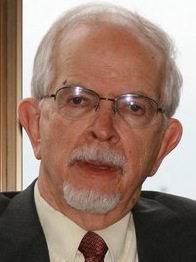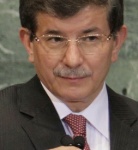
1. Join the Rome Statute for the International Criminal Court and file a complaint with the ICC against the illegal settlements and settlers, who are committing war crimes;
2. Join the Statute for the International Court of Justice, sue Israel at the World Court, and break the illegal siege of Gaza;
3. Join the Law of the Sea Convention and get its fair share of the enormous gas fields lying off the coast of Gaza, thus becoming economically self-sufficient;
4. Become a High Contracting Party to the Four Geneva Conventions [this deals with the laws of war];
5. Join the International Civil Aviation Organization and gain sovereign, legal control over its own airspace;
6. Join the International Telecommunications Union and gain sovereign legal control over its own airwaves, phone lines, bandwidths.
Anticipating the overwhelming "yes" vote for Palestine, John V. Whitbeck, an international lawyer who has represented the Palestinian negotiating team in negotiations with Israel, wrote in a posting for Huffington Post his reasons why the U.S. and other Western states, should vote in the affirmative:
"For compelling legal, moral, ethical and practical reasons, the United States and other Western states should join the great majority of UN member states, encompassing the vast majority of mankind, in honoring the moral obligations and legal responsibilities of the international community toward the Palestinian people by formally recognizing that, 65 years after the General Assembly's fateful recommendation to partition Palestine, the two states envisioned by the General Assembly do indeed exist, even though one state is, temporarily, under military occupation by the other state.
"This is a situation which, in the interests of both justice and international legality, requires rectification through urgent and intensive state-to-state negotiations in accordance with terms of reference which are consistent with international law and relevant UN resolutions and with the full, active and determined support of the international community."
Prior to the UN vote, Hillary Clinton, the U.S. secretary of state, said that the U.S. believed the Palestinian move was misguided and efforts should focus instead on reviving the stalled Middle East peace process. She added:
"The path to a two-state solution that fulfills the aspirations of the Palestinian people is through Jerusalem and Ramallah, not New York," she said. "The only way to get a lasting solution is to commence direct negotiations."
Dr. Hanan Ashrawi, Senior member of the Palestine Liberation Organization's Executive Committee and an elected member of the Palestinian Legislative Council, wrote on Wednesday before the vote that negotiations do not work unless the negotiators want to find solutions:
"It might seem stating the obvious that Palestinians and Israelis find solutions only through negotiation, until you look at the record. It is a story in which one side makes proposals for nothing in return; one side makes agreements that the other side breaks; and one side keeps commitments that the other side ignores.
"Take a recent decision by Israel to approve 100 new homes for its Jewish citizens in the illegal settlement of Gilo, when the Israeli army was bombarding and shelling Gaza. This (along with numerous other settlement decisions by Israel) constitutes a clear breach of signed agreements and of international humanitarian law.
"Today we return to the UN general assembly, the world's largest multinational arena, where each of 193 states has a vote of equal value and none has a veto. Supporting our bid for enhanced status at the UN is a vote for the universal values of human rights embodied in the UN charter. Opposing it would make the Palestinian people the glaring exception to universal human rights, denying us the right to self-determination. Ironically, it would constitute a collective punitive measure against us for pursuing our freedom peacefully on the basis of international law and in adherence to what should be a global rule of law.
"The question the international community should ask is not who wants negotiations, but who wants solutions. The answer is clear -- one side wants to negotiate a permanent solution and the other wants permanent negotiations."
"The Marshall Islands, Micronesia and Palau, all former components of the U.S. Trust Territory of the Pacific Islands, are 'freely associated states' of the United States, with U.S. zip/postal codes and 'Compacts of Free Association' which require them to be guided by the United States in their foreign relations. They more closely resemble territories of the United States than genuine sovereign states -- rather like the Cook Islands and Niue, 'freely associated states' of New Zealand which make no claim to sovereign statehood and are not UN member states. They snuck into the UN in the flood of new members consequent upon the dissolutions of the Soviet Union and Yugoslavia, when the previous standards for admission were effectively ignored.
"Nauru, a tiny island of 10,000 people in the central Pacific, has, since the exhaustion of the phosphate deposits which briefly made it the country with the world's highest per capital income, had virtually no sources of income other than selling its UN votes (reliably joining the United States in voting against Palestine) and diplomatic recognitions (alone in joining Russia, Nicaragua and Venezuela in recognizing Abkhazia and South Ossetia) and housing in insalubrious tents aspiring illegal immigrants hoping to reaching Australia. I cannot begrudge Nauru. I have been there. It is an an appalling place, an island with no beaches, the world's highest obesity rate and no real alternative to diplomatic prostitution.
"Accordingly, only three 'real' states joined Israel and the United States in voting against Palestine and the two-state solution: Canada, the Czech Republic and Panama. They must make their own excuses."
Israel's declining support around the world has dwindled down to a tiny minority of Those Who Have Their Excuses.
The picture above of President Abbas, taken after the vote, is by Damon Winter of the New York Times. The picture of Turkish Foreign Minister Ahmet Davutoglu is from Reuters, taken by Brendan McDermid.






